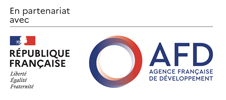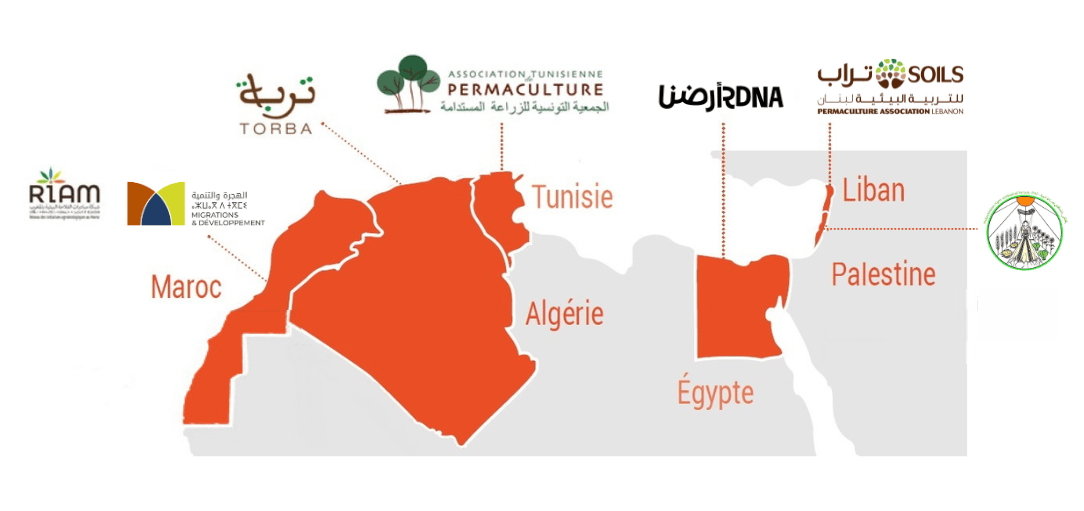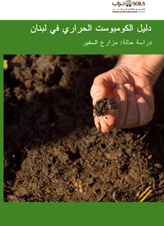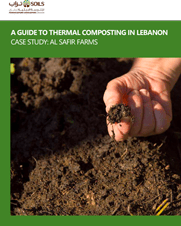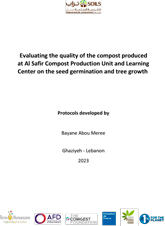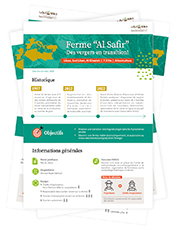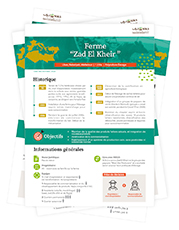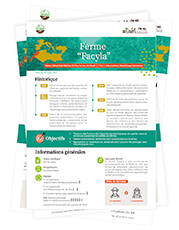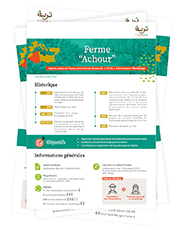AMED Project
In response to the challenges of climate change and food insecurity, the AMED project, led by Terre & Humanisme, ran from 2021 to 2024 with the goal of enhancing food sovereignty in Southern Mediterranean countries through the support of sustainable, peasant agriculture.
The project was implemented in six key countries: Algeria, Egypt, Lebanon, Morocco, Palestine, and Tunisia, in collaboration with seven local partners.
Activities were organized around three main focus areas:
- Strengthening the skills of local partners to better address agroecological challenges.
- Developing reference sites and educational farms, aiming to enhance the recognition of agroecology in intervention areas.
- Knowledge exchange to build a Mediterranean network, encourage peer interactions, and break the isolation of partners.
Partners map
The project’s outcomes are significant:
- Tailored training programs: over 1,200 people, including one-third women, were trained in the principles and practices of agroecology.
- Increased awareness: more than 14,500 people were made aware of agroecological issues.
- Equipped educational farms: 12 agroecological farms were equipped to become models of sustainable agriculture and host visitors.
- Strengthened local food systems: 15 short supply chains were established or reinforced, promoting healthy, local food.
Last but not least, the project enabled its partners to produce educational resources, which we are delighted to share with you here.
The AMED project received the financial support of: the French Development Agency (AFD), the COMGEST Foundation, the Fondation de France, the Pierre Rabhi Endowment Fund, and 1% for the Planet.
The Project Partners: Key Contributors to Knowledge Capitalization
The AMED project has fostered the creation of a wide range of educational and awareness-raising resources developed by our local partners. These materials, compiled in a comprehensive knowledge capitalization effort, come in various formats, including educational videos, podcasts, and booklets.
The goal of this knowledge capitalization is to highlight the collective expertise of the partners and to provide practical tools for promoting agroecology across the Mediterranean region. It also showcases the reference farms that partners collaborated with, offering farm summaries, case studies, and a guide that detail best practices in action.
To address the needs expressed by our local partners, most resources are available in Arabic, ensuring accessibility for local communities. English and/or French translations are also provided to broaden the reach of these tools.
These resources are designed for facilitators and organizations working to spread agroecology in Arab Mediterranean countries, catering to both adults and young audiences. They serve as valuable tools for awareness campaigns, training programs, and supporting reference farms.
Educational and Awareness Resources
Agroecology facilitator’s handbook
This handbook was developed as part of the “Facilitating Agroecology” training program conducted in the Southern Mediterranean basin by Terre & Humanisme and its partners between 2018 and 2020. It compiles facilitation tools that were introduced and tested during two agroecology facilitator training sessions held in Lebanon in March 2019 and Morocco in October 2019.
The handbook complements the educational tools created under the AMED project, which is why it is presented here. Available in French and Arabic.
Activity Booklet for Children
The booklet titled « Permaculture Challenge Passport » was created by scouts trained and supported by the Tunisian Permaculture Association. Its goal is to raise awareness among young audiences about agroecology and permaculture through fun, nature-based activities. Available in Arabic and French.
Educational Videos
These educational videos, created by SOILS Permaculture Association Lebanon, are designed to support online training. They cover five topics: wildlife in the garden, mixed cropping, integrated pest management, propagating crops from seeds, and compost grading. Available in Lebanese (the original language), these videos are also subtitled in Classical Arabic, French, and English (subtitles’ language can be selected directly on YouTube).
Reference Farms of the AMED project
Egypt Farmer Guide
This guide, created by RDNA (Egypt), provides a brief overview of 30 partner farms located in three governorates: Sharqiya, Fayoum, and Beheira. It offers insights into the agroecological practices of these small farms, with the aim of raising consumer awareness about the origins of their food and fostering connections between farmers and consumers in Egypt. The guide may also inspire activists beyond Egypt who are working to develop short supply chains. Available in English only.
A Guide to Thermal Composting in Lebanon
This guide, produced by SOILS Permaculture Association Lebanon, draws on the experience of the manager of Al Safir Farm in setting up a thermal composting unit, with the support and guidance of SOILS. Its purpose is to serve as a model for farmers and entrepreneurs looking to start producing high-quality compost. The guide is also accompanied by protocol sheets for measuring compost quality, developed by SOILS.
Farm Profile Sheets (Fermoscopy)
Fermoscopy is a tool for characterizing agroecological farms and assessing their technical, economic, and environmental dimensions. Initially developed by the CIVAM in France, this tool was adapted and tested by Terre & Humanisme, first in West Africa and then in the Mediterranean region. As part of the AMED project, the fermoscopy was conducted on reference farms in Morocco, Lebanon, and Algeria. These farms either practice agroecology or are transitioning towards it. In the case of transitioning farms, partners chose to conduct the fermoscopy at the start of the transition and then revisit the same farms after a few years to observe progress. Farm profile sheets were created to provide an overview of these farms. Available in Arabic, French, and English.
